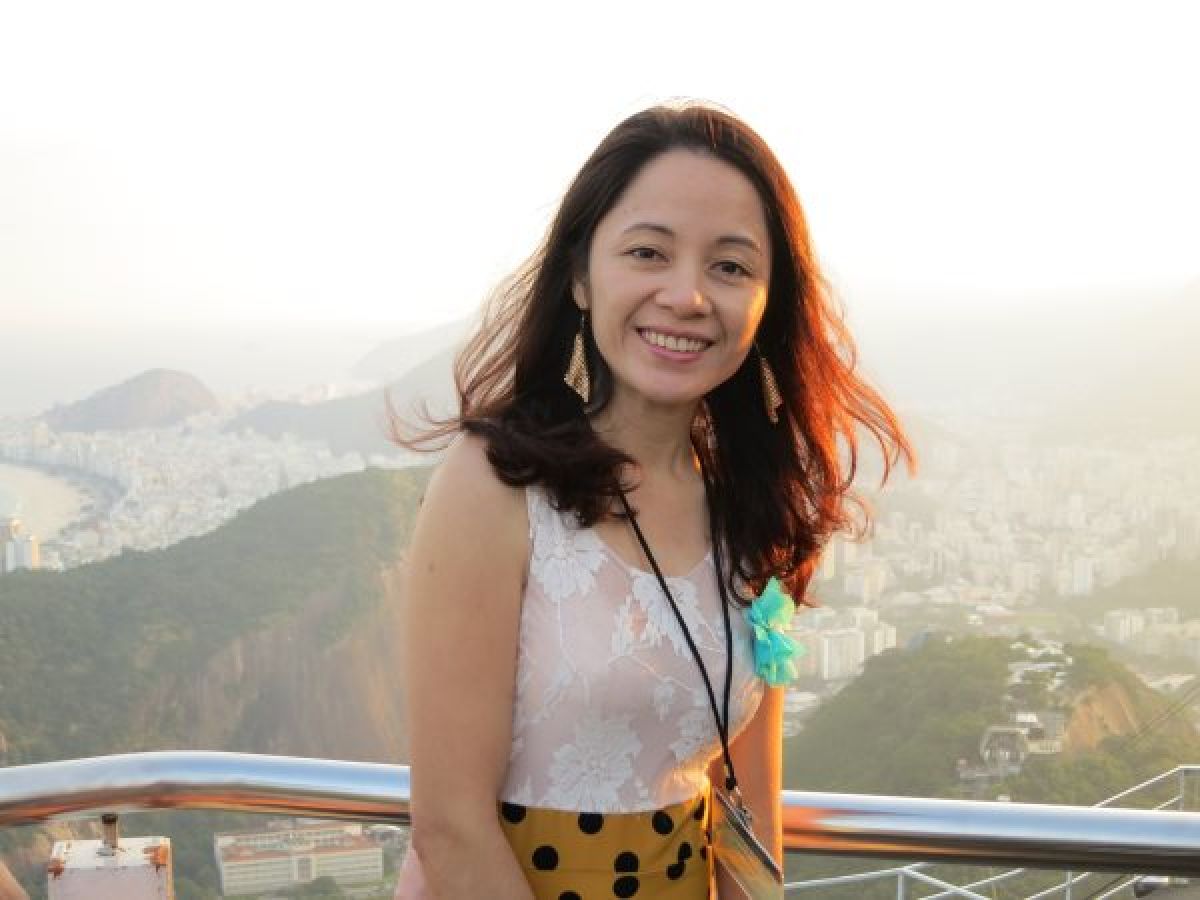
Why did you decide to move to Singapore?
Half of the reason was personal. I needed a fresh start after going through a major change and wanted to begin with a clean slate. I needed to move on, or move forward, or however you want to call it. And life has been good since then.
The other half of it was a desire to find out if I could make it in another place, having never really wanted to work or live outside my home country. And Singapore was a natural choice for me because I had lived here previously while doing my graduate program.
How was the moving process?
It was relatively easy because I was to some extent familiar with my new place. And Singapore was such a convenient and efficient city in many aspects that I found no difficulty moving here for a longer term. It helped that I had friends already working here back then - I had a ready place to stay in temporarily and good company to make me feel less homesick.
Did you face some difficulties in adapting to your host country?
Not really. I'm from the same region as Singapore, and its culture is not completely different from mine. It is a multi-cultural city and so is relatively open to outsiders, though I believe it was more open back then than now. It is also highly secure, and there is a well-working system in most aspects of the society. English is widely spoken, so communication is hardly a problem.
But I came here without any family - I had to adjust again to living alone. The pace of life and work here was also a bit different from what I was used to. I found it somewhat dizzying, figuratively, in my first month of working here, seeing people seemingly always in a hurry.
You first came to Singapore as a student. What formalities did you have to go through in order to be able to study there? Why did you decide to stay after your studies? What are the opportunities offered to students after their studies in Singapore?
I had to apply for a student pass and get an in-principle approval prior to coming here. Of course, before that I had to first obtain admission to my chosen program. Luckily for me, since I applied under a scholarship program, a single application sufficed for both admission and grant.
The government does not offer foreign students a job after graduating. It is up to you to look for one if you are keen on staying on and working here. During my time, though, foreign graduate students on their final year in the university were invited to apply for permanent residence upon securing a job offer. But I heard this had been stopped since 2009.
I went back to Manila once done with my course and while waiting for my dissertation's approval. I decided to come back only a year after.

What surprised you the most in Singapore?
I had heard a lot of how clean and orderly and organized a place Singapore was before coming here. But still when I got here, I was in awe of how squeakily clean and highly orderly everything was.
I remember being amazed at how even the Catholic churches here were so orderly in their rites during Mass. Every movement of the altar boys seemed choreographed, and every mass-goer was so disciplined in waiting for their row's turn to queue for communion. I ended up just observing all of these during my first one or two times attending Sunday Mass instead of listening to the priest!
Is it easy to meet new people in Singapore? Any advice you would like to share with the other members?
Yes, it is. There are more nationalities here now than I had ever noticed in the past, so finding people from your own place will not really be a problem. Meeting people of other nationalities and places is just as easy given how vibrant the social scene here is. I suggest you to start by joining online forums, such as those organized by your compatriots, to form an initial group of acquaintances.
Could you please share with us something you like about Singapore and something you don't like?
I like the fact that meritocracy is valued and practiced here. I like the city's drive for continuous improvement and excellence. I admire how its government works hard to give its citizens a chance for a better life. Being a parent, I value how safe and secure this place is. And I love that it is an aviation hub - it gives everyone here an easy access to a lot of places, and more importantly for me, it gives my family and me several choices of airlines and daily flights to go home. On the other hand, I have seen the past few years how the country has become less welcoming of outsiders, given the ongoing discourse on immigration and foreign talent.
What do you miss the most about the Philippines, your home country?
My family and friends. I also miss the noise and vibrancy of Manila every now and then - and its music scene, nightlife, food, warmth and geniality. And I miss putting my haggling skills to good use in Divisoria and Quaipo - two shopping heavens for budget shoppers in the city of Manila, though the former is much more than just a shopping place. Wow, that's a lot of things. I better plan a vacation soon!
How often do you go back home?

Twice a year, to spend at least a week with my family in Palawan and then spend a few days with friends in Manila. I'm lucky if my company sends me back home for an event or a market visit.
Tell us more about your day-to-day life in Singapore:
From Monday to Friday, I find myself mostly in this tiny office tucked in the corner of an old Singapore street rushing my write-ups, doing editing work, working with my designer, delegating work to my team, clearing and replying to endless emails and doing any work I can get my hands on. Some days I rush to interviews, press briefings and other client or industry events - the best of them are cocktail events at the end of the working day. Luckily in my line of work, and my magazine having a regional coverage, I get to travel at least once in two months. I can travel more often than that, but I prefer to limit the time I'm away from my angel, my daughter. My after-work is mostly spent with her, either at home or outside for dinner and meet up with friends. Since she's only four, I try not to drag her too much outside the house, especially on weekdays when she has school in the morning. Weekends are spent going out on Saturdays - grocery shopping, dinner with friends and movie watching if there's enough time. I catch up on reading on Sundays and I blog if I can summon some energy and inspiration after a day of looking after my little one. On some Sundays, my sister and I try to take my daughter out for some kiddie activities. But more often, we prefer to stay home on Sundays to load up on energy for the next day, the big Monday.
Is there any aspect or tradition of Singapore you have embraced since living here?
I have embraced the local food. Some may not call it exactly "local" because the typical Singapore fare consists of Chinese, Indian and Malay cuisines as well as fusion of these three. But the city has its own version of these cuisines, which I truly enjoy.
Why did you decide to share your experience in Singapore on your blog, Nittgritt?
I decided to blog as an outlet, to give me an avenue to write outside of what I do for work. It's more than just sharing my experience living in another country. Since it's a personal blog, I don't really want to limit it to just one area.
Which advice would you give to people wishing to settle in Singapore?
Learn about the place and know what you can't and shouldn't do here. Singapore is an open city, but it expects everyone within its territory to live by its rules. And when you're here, please don't complain about the weather being too hot and humid. If you've done your research and know the place's geography and climate, you should know that it's the reality here and that it's a waste of your time and energy to grumble about it.
Lastly, enjoy the place. Singapore is a melting pot of different cultures and people, and it always offers something new for everyone. There is so much to learn and experience here. Just be ready to open your mind, and your purse!



















